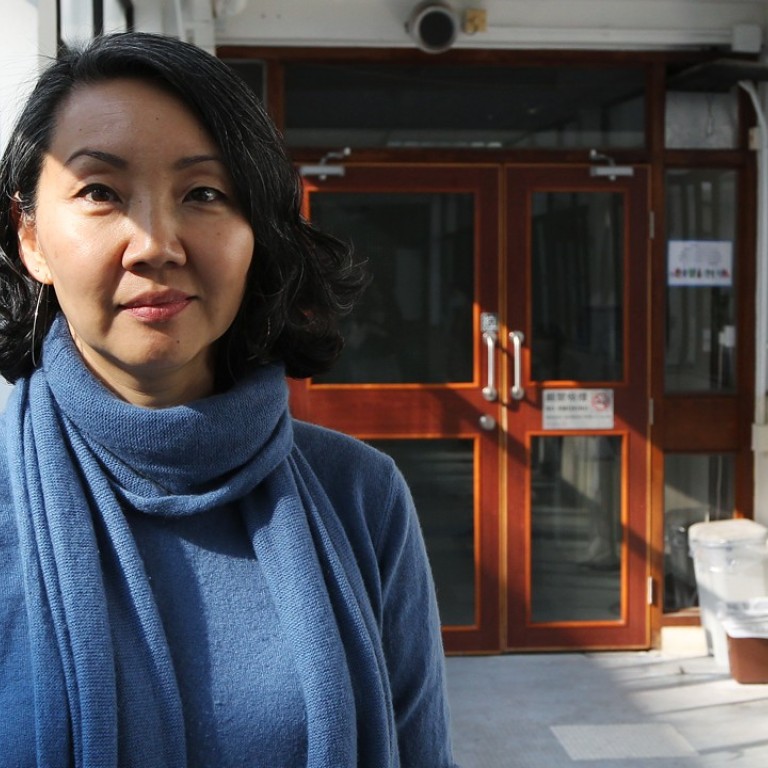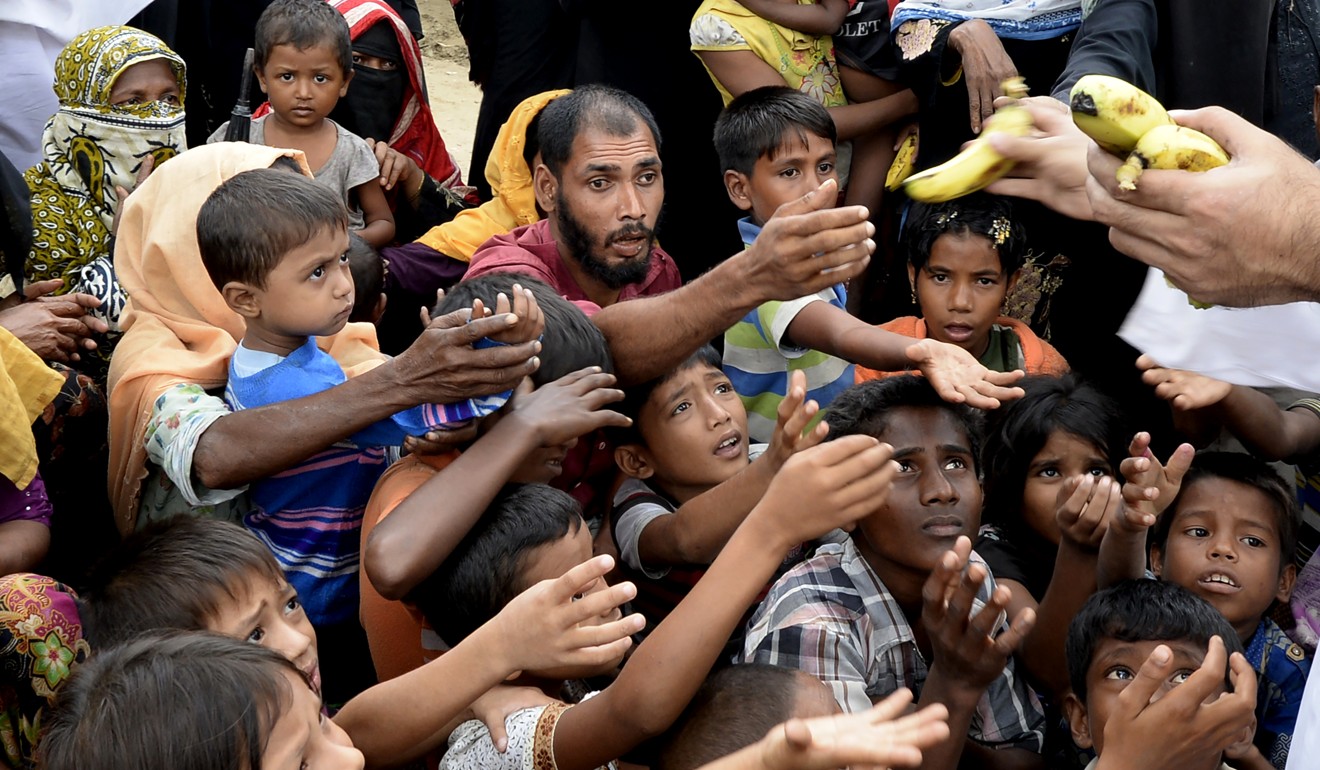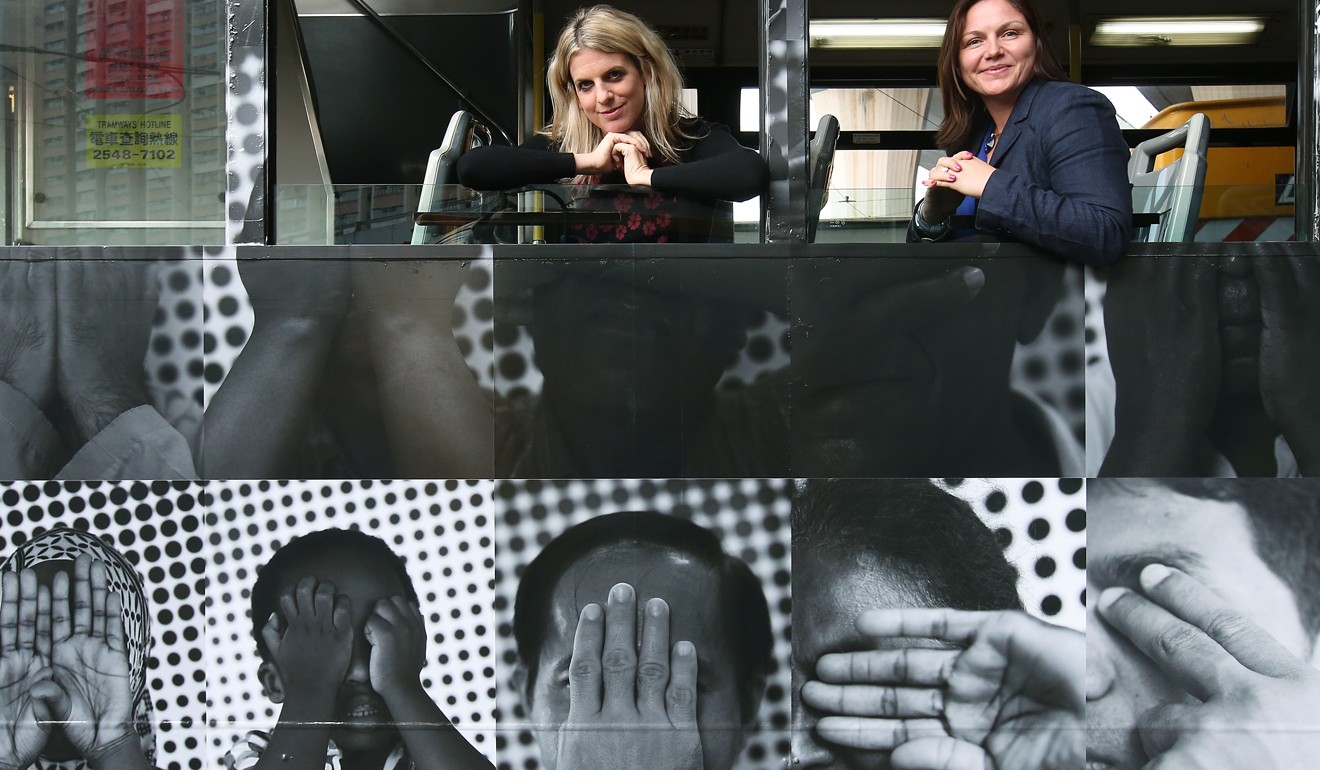
Hong Kong donations have made a difference to Rohingya crisis – but more still needed, says UN representative
UNHCR Emergency Response Coordinator says Hong Kong can play vital role in advocacy of human rights and refugee rights
Hongkongers have donated almost HK$5 million (US$640,000) to support Rohingya refugees in Bangladesh since September, a United Nations’ emergency coordinator has said.
“The level of private donor support has been phenomenal. We are so grateful to how the people of Hong Kong have shown] support and solidarity for the Rohingya refugees,” UNHCR Emergency Response Coordinator Joung-ah Ghedini-Williams said.
The donations have topped “many European countries, where we have long-established fundraising campaigns,” she added, during a two-day visit to meet donors and the UNHCR team based in the city.

About 625,000 Rohingya have fled to Bangladesh to escape violence in the northern Rakhine state of Myanmar since August 25, bringing the total number of refugees close to a million. The figures continue to grow, with 1,500 Rohingya arriving last week.
Donations are not just charitable acts to show empathy and human kindness, they are acts that say ‘this is what I believe in’
Many donors and governments have provided major support but the UN said there was still a 37 per cent gap, with more than HK$2 billion (US$256 billion) needed by February to provide basic needs for the refugees.
“Donations are not just charitable acts to show empathy and human kindness, they are acts that say ‘this is what I believe in’, not only as an individual but as a citizen,” Ghedini-Williams, who has worked for the UNHCR for nearly 20 years, said.
“If this campaign is any indication, the people of Hong Kong are standing with the Rohingya refugees – and with the refugee case in general.”
The UN representative said the city could play a leading role when it came to supporting the plight of asylum seekers.
“As a global leader in so many sectors, [Hong Kong] can play a vital role in advocacy of human rights and refugee rights,” she said.
Ghedini-Williams, who is based in Geneva, said negative comments against asylum seekers in the past couple of years were not a reflection of the general population in Hong Kong.
Ghedini-Williams noted the Rohingya crisis had been a silent one for many years.
“About 200,000 Rohingya were already in the camps in Bangladesh in the 1990s … It has been a forgotten crisis until this latest escalation of violence that led to 620,000 people to flee,” she said.
Rohingya to stay in temporary houses on return to Myanmar, Bangladesh official says
Bangladesh and Myanmar agreed on November 23 to start returning the Rohingya within two months. Ghedini-Williams said the UNHCR supported the return, if it was voluntary, safe and sustainable.
“We want to make sure the conditions are in place for these families to return home and stay home with access to basic services and the right to be fully incorporated,” she said.
Ghedini-Williams said the agency was keeping a close watch on other crises unfolding around the world, including in Yemen, the Democratic Republic of Congo and Venezuela.
Regarding escalating tensions on the Korean Peninsula and a potential refugee crisis in Asia, the UN representative said: “Right now, we do have our hands pretty full with existing crises. We watch and monitor everything that happens in a geopolitical context, because displacement is [often] a product of conflict.

“We have been surprised by how quickly things can change,” Ghedini-Williams said. “Even in my own personal history. My family members told me that before the Korean war there was tension, but they had no idea … and[suddenly] they had to flee from Seoul. Everything happened so fast.”
“That’s the nature of war … Nobody expects it. You don’t have time to prepare a bag or passport. Refugees are [often] forced to run for their lives.”
Meanwhile, non-profit organisations Hong Kong Contemporary Art Foundation – know as HOCA – and We Are Here, launched the Inside Out Project. A tram lined with portraits of Hong Kong’s refugees and asylum seekers, raising awareness for the untold stories of this community, is circulating in the city until January 7.
As of September, there were 7,244 people waiting to have their cases screened in Hong Kong. The few who have their claims recognised are then referred for resettlement in a third country.

